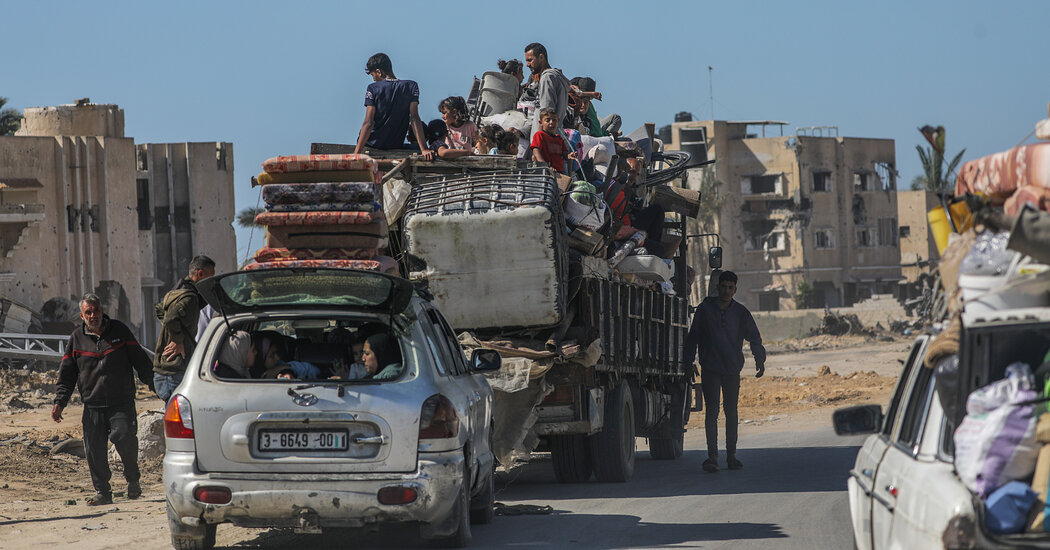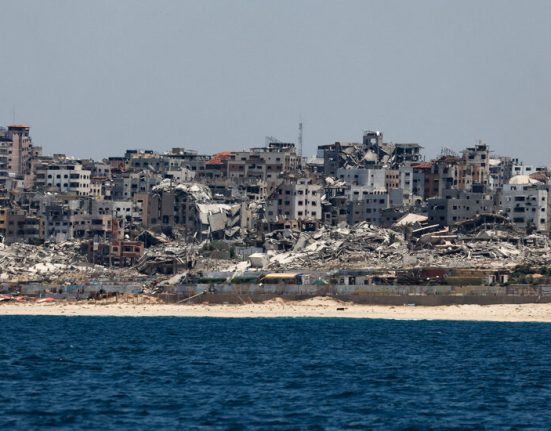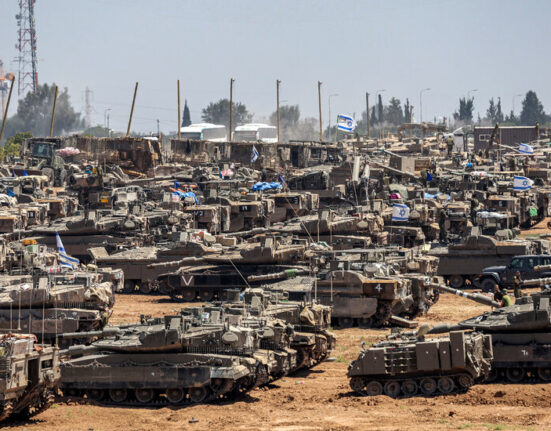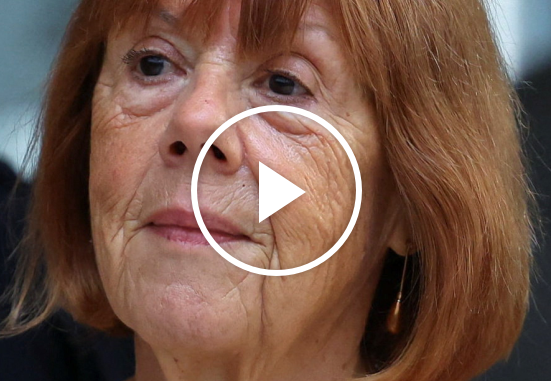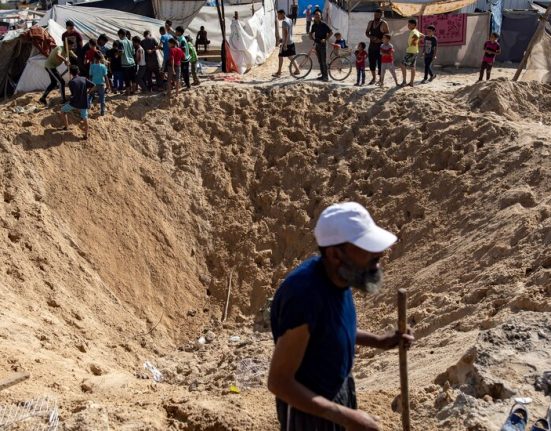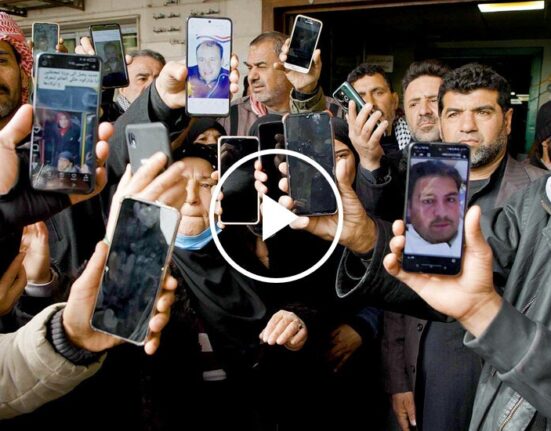Tens of thousands of people have fled since an Israeli call this week to evacuate part of the southern Gazan city of Rafah, the United Nations said on Thursday, as Israeli airstrikes intensify and fears grow that an incursion by Israeli ground forces to take over a border crossing could lead to a full-scale invasion.
The mass flight from the east of the city, a major hub for people displaced from their homes along Gaza’s border with Egypt, is just the latest time that people have been forced to flee since Israel launched a war to dismantle Hamas, the armed group that led the deadly attack on Israel on Oct. 7.
Louise Wateridge, a spokeswoman for the U.N. agency that aids Palestinians, UNRWA, said on Thursday that an estimated nearly 79,000 people had left the city since Monday. She posted a video on social media of small vans loaded with mattresses driving slowly down a street lined with tents.
“Extreme fear from significant bombardment in Rafah overnight & continuing throughout this morning,” Ms. Wateridge wrote, noting that “those staying collecting water” were “surviving.”
Rafah’s population had increased to more than one million in recent months as people fled south. Hundreds of thousands of people live in tents or makeshift shelters. Residents and aid workers describe grim conditions and severe shortages of food, clean water and access to medical supplies.
Israel on Monday began what it called a limited operation to secure the Gaza side of the Rafah border crossing with Egypt and destroy Hamas positions after a rocket attack in another area killed four Israeli soldiers the day before. The Israeli authorities warned around 110,000 people in Rafah to flee, calling on them to go to what they characterized as a humanitarian zone on Gaza’s coast where they said they could get food, medicine and other basics.
Many aid workers have argued that the area, which includes the village of Al-Mawasi, is already crowded with people living in tents and is not able to accommodate another influx, not least because it has inadequate water and sanitation.
Many aid agencies are based in Rafah and several said on Wednesday that their operations were imperiled by the proximity of the fighting and by the closure by Israel this week of two southern border crossings, which have been the principal conduits for humanitarian supplies.
Israel said on Wednesday that it had reopened one of those, the crossing at Kerem Shalom, which it had shut down over the weekend, but the United Nations said it was still very difficult for aid to transit.
Jens Laerke, a spokesman for the U.N. humanitarian office in Geneva, described Rafah as a “highly active war zone” and said that this presented “serious challenges” not just in shepherding goods through Kerem Shalom, but also in trying to move them through southern Gaza and further into the enclave.
“We reiterate that the parties’ obligation to facilitate aid does not end at the border or in a drop-off zone,” he said. “Aid must safely reach those who need it.”



